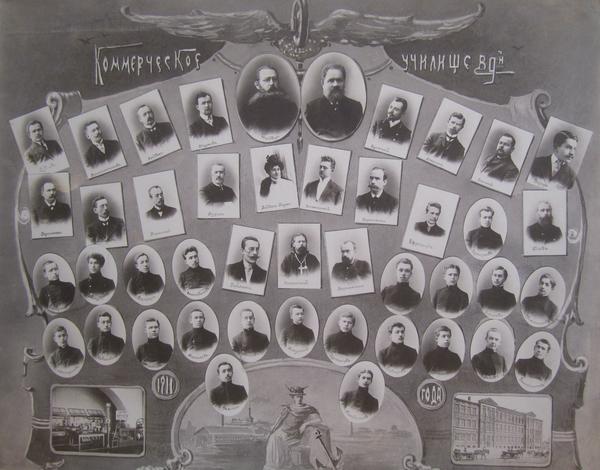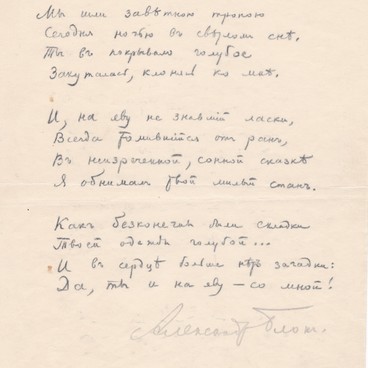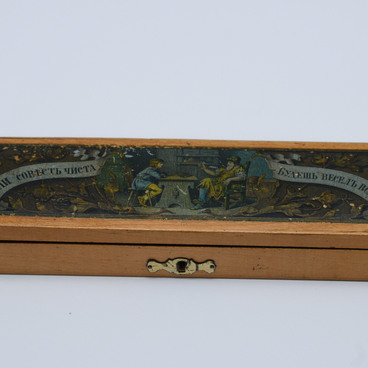In 1901, Kostya Fedin began his studies at the Saratov Commercial School. He was not terribly successful because he lacked enthusiasm for his studies. However, there was no other choice and there was no point in arguing with his father, who needed a commercial successor. Alexander Erofeevich, the authoritarian father and head of the family, envisioned his son’s future maintaining and developing trade in a stationery supply store. The son’s attempts for run away from home could not shake the father’s confidence that he had chosen the correct profession for his son. Nevertheless, a compromise would be found.
In 1908, Konstantin Fedin matriculated at the commercial school in the city of Kozlov (now the city of Michurinsk). Kozlovsky Commercial School was a special educational institution with the rights of a real school that trained commercial specialists. It accepted children from all classes and religious faiths. In addition to the curriculum of a secondary educational institution, the school also taught special commercial disciplines: commodity research, commercial accounting, commercial geography, technology, and commercial correspondence in Russian, French, and German. The training of specialists was carried out very seriously.
But the main thing was that the teaching carried out here was conducted in a completely different way: the whole spirit of the educational institution was saturated with the humanistic traditions of Russian social ideas. And the philology teachers were imbued with respect for the covenants of classical and, importantly, modern Russian literature. Thanks to them, the students re-read and re-interpreted the great works of Russian literature, finding in them, by the admission of the future writer, “incomparable joy.” All this was reflected in the moods and views of the students.
Subsequently, Fedin spoke with extraordinary warmth about his years of study here and considered them the best in his youth. He recalled his fellow graduates, who included gifted mathematicians, chemists, and inventors. Fedin remained friends with one of his classmates, Gleb Vasilievich Avdeev, who became an engineer in Leningrad, until the end of his life. He recalled with special trepidation the teachers and considered them responsible for instilling in him a propensity for writing. He wrote his first story while studying at the school in 1910 in imitation of the Gogol’s Overcoat.
In 1908, Konstantin Fedin matriculated at the commercial school in the city of Kozlov (now the city of Michurinsk). Kozlovsky Commercial School was a special educational institution with the rights of a real school that trained commercial specialists. It accepted children from all classes and religious faiths. In addition to the curriculum of a secondary educational institution, the school also taught special commercial disciplines: commodity research, commercial accounting, commercial geography, technology, and commercial correspondence in Russian, French, and German. The training of specialists was carried out very seriously.
But the main thing was that the teaching carried out here was conducted in a completely different way: the whole spirit of the educational institution was saturated with the humanistic traditions of Russian social ideas. And the philology teachers were imbued with respect for the covenants of classical and, importantly, modern Russian literature. Thanks to them, the students re-read and re-interpreted the great works of Russian literature, finding in them, by the admission of the future writer, “incomparable joy.” All this was reflected in the moods and views of the students.
Subsequently, Fedin spoke with extraordinary warmth about his years of study here and considered them the best in his youth. He recalled his fellow graduates, who included gifted mathematicians, chemists, and inventors. Fedin remained friends with one of his classmates, Gleb Vasilievich Avdeev, who became an engineer in Leningrad, until the end of his life. He recalled with special trepidation the teachers and considered them responsible for instilling in him a propensity for writing. He wrote his first story while studying at the school in 1910 in imitation of the Gogol’s Overcoat.



